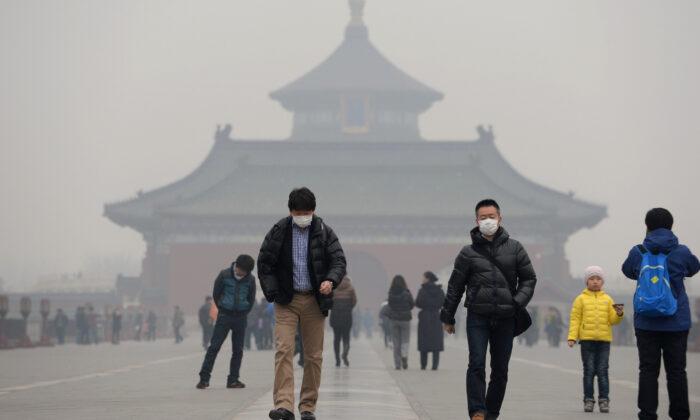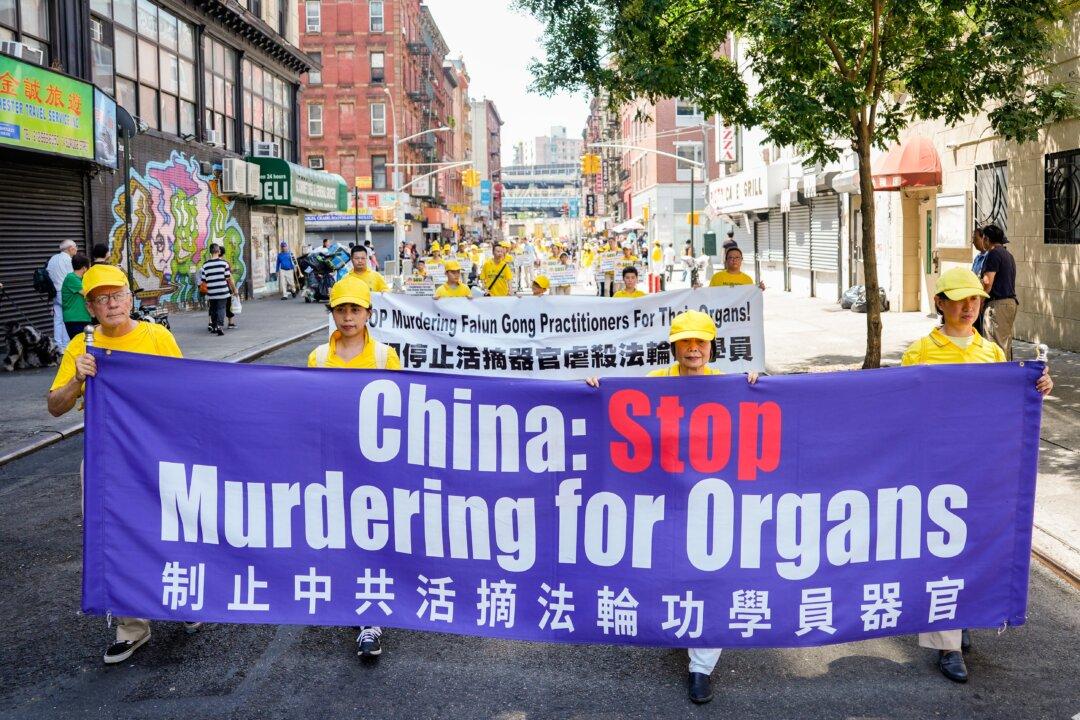A report by China’s central bank says that the country needs 2 trillion yuan (about $322 billion) every year for the next five years if it wants to counter the impact of pollution on the environment. The startling number is three percent of China’s total GDP.
The annual government budget sits at around 14.2 trillion yuan and the portion dedicated to the environment was 1 trillion yuan in 2014.
But even these numbers may not cover dealing with the full extent of environmental pollution in China. “Spending a few trillion yuan would only mitigate the level of pollution, but to really solve the pollution issue in China, a few trillion won’t do. China needs hundreds of trillions,” according to Frank Tian Xie, a professor at the Business School of the University of South Carolina, in an interview with Radio Free Asia.
Chinese author Zheng Yi, based in the United States, said that resolving just heavy metal pollution would be an enormous economic burden.
“Currently the method to tackle the problem of land pollution is digging the soil that has been polluted, however deep the pollution might be. The polluted soil is then transported and buried elsewhere. There are millions of acres of land in China that have been polluted. It is simply impossible to dig up a few meters of the soil from all these polluted places,” Zheng said in an interview with RFA.
Official Chinese statistics indicate that one-fifth of all agricultural land has been polluted by heavy metals to differing degrees, and that about 10 percent has been severely polluted.
As for groundwater and coastal water pollution, Zheng Yi says that money can’t solve those problems. Only nature, over thousands of years, can repair such contamination.
One attempt the regime is making to mitigate air pollution is to reduce reliance on coal power plants to generate electricity, and go nuclear instead. According to the People’s Bank of China report, authorities have earmarked 930 billion yuan (about $150 billion) for the construction of nuclear power plants.
Rapid economic development in China over the last thirty years has come at the massive expense of environment, says Zheng Yi. It’s been bad for the country, but a bargain for the rich and powerful—and it’s unclear if the efforts to clean it up won’t also be hijacked by vested interests, he says.
“It is like selling your family’s wok. You benefit at the expense of your parents, and you can use the money to buy candy,” Zheng said. “Similarly, taxpayers’ money is used to fight environmental pollution. And the beneficiaries of tackling pollution are the rich and powerful people in China.”






Friends Read Free